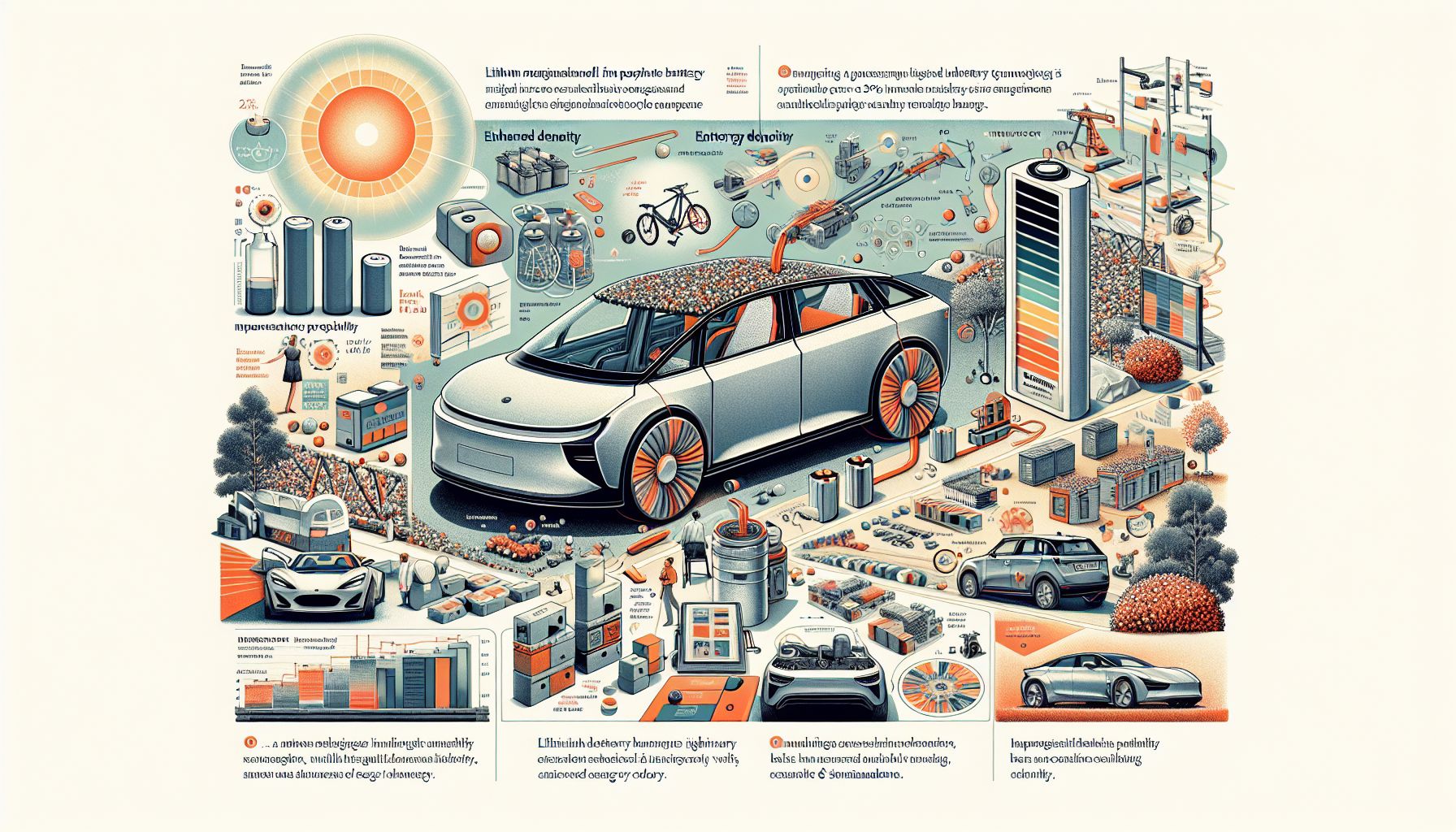Battery Breakthrough Promises 20% Boost in Electric Vehicle Range

Netherlands, Monday, 14 October 2024.
UK-based Integrals Power has developed a new Lithium Manganese Iron Phosphate (LMFP) battery technology that could increase electric vehicle range by up to 20%. This advancement combines affordability, sustainability, and improved energy density, potentially accelerating the transition to e-mobility.
The Innovation Behind the Breakthrough
Integrals Power, a UK-based company, has introduced an innovative battery technology leveraging Lithium Manganese Iron Phosphate (LMFP) materials. This new development aims to address the persistent challenge of increasing the energy density of electric vehicle (EV) batteries while maintaining affordability and sustainability. The LMFP cathode material integrates the cost-effectiveness and durability of Lithium Iron Phosphate (LFP) with the high energy density attributes of Nickel Cobalt Manganese (NCM) technologies. This innovation is particularly notable for its manganese content, which stands at 80%, significantly surpassing the 50-70% found in other competing technologies[1].
Technical Advancements and Efficiency Gains
The LMFP technology developed by Integrals Power exhibits a specific capacity of 150 mAh/g, operating at a voltage of 4.1 V, compared to the traditional 3.45 V of conventional LFP cells. This increase in voltage and specific capacity is crucial for enhancing the range and efficiency of EVs. The innovation stems from a patented manufacturing process that allows the company to maintain high capacity in the battery without the typical reductions seen when increasing manganese content. This breakthrough not only boosts the battery’s performance metrics but also supports a more sustainable and cost-effective production process[1].
Implications for the Electric Vehicle Market
The introduction of this advanced LMFP battery technology is poised to have significant implications for the electric vehicle market. By offering a 20% increase in range, it addresses one of the primary concerns of potential EV buyers—range anxiety. This improvement in battery capacity and efficiency can accelerate the adoption of electric vehicles globally, supporting efforts to reduce carbon emissions and transition towards cleaner transportation solutions. Moreover, the affordability and sustainability of these batteries make them an attractive option for manufacturers aiming to produce cost-effective EVs while meeting environmental standards[1].
Future Prospects and Industry Impact
Integrals Power’s LMFP battery technology represents a significant step forward in the quest for better battery solutions in the automotive industry. The company’s strategic focus on creating a ‘world-class cell material’ positions it as a key player in the evolving landscape of electric mobility. As the company continues to develop and test its battery materials, it is expected to contribute substantially to the performance and sustainability of future EV models. The positive reception and third-party validation from institutions like the Graphene Engineering Innovation Centre further underscore the potential impact of this technological advancement on the global EV market[1].

